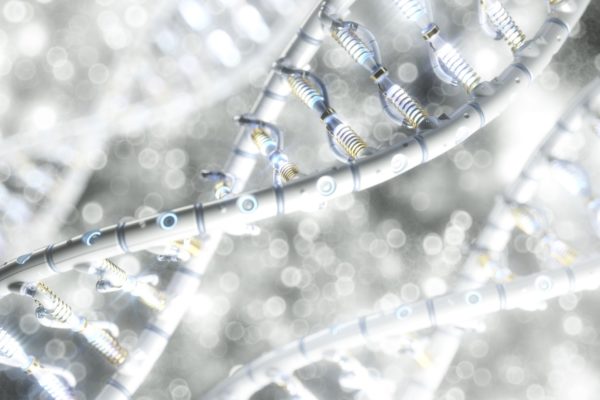
Many older patients with acute myeloid leukaemia (AML) die or cannot undergo an allogeneic haematopoietic stem-cell transplantation (HSCT) due to toxicity caused by intensive chemotherapy. Therefore, efforts are being made to replace intensive chemotherapy by less toxic regimens, such as decitabine. While decitabine did not improve survival compared to chemotherapy, it demonstrated a more favourable safety profile and could be considered a better-tolerated and sufficiently efficacious alternative to chemotherapy in fit older patients with AML.1
Older patients with acute myeloid leukaemia (AML) have a small (<10%) chance of long-term survival. Despite the treatment of elderly AML patients with intensive chemotherapy, survival has not improved during the last decades. The purpose of this study is to determine whether front-line therapy with a 10-day decitabine schedule leads to a better survival than standard intensive combination chemotherapy in elderly AML patients (≥ 60 years).2
Methods
This open-label, randomised, controlled, phase III trial was conducted at 54 hospitals in nine European countries. Newly diagnosed AML patients aged >60 years were enrolled if they had an Eastern Cooperative Oncology Group performance status of two or less and were eligible for intensive chemotherapy. Patients were randomly assigned (1:1) to receive decitabine or standard chemotherapy (known as 3 + 7). For the experimental arm, decitabine (20 mg/m2) was administered for the first ten days in the first 28-day cycle, followed by 28-day cycles consisting of five days or ten days of decitabine. For the 3 + 7 group, daunorubicin (60 mg/m2) was administered over the first three days and cytarabine (200 mg/m2) over the first seven days, followed by 1-3 additional chemotherapy cycles. Allogeneic hematopoietic stem cell transplantation (HSCT) was strongly encouraged. Overall survival (OS) in the intention-to-treat population was the primary endpoint. Safety was assessed in all patients who received the allocated treatment.
Findings
In total, 606 patients were randomly assigned (1:1) to receive either decitabine (n=303) or 3 + 7 (n=303) therapy. After a median follow-up of four years, the results did not reveal any difference in OS between the arms (HR[95%CI]: 1.04 [0.86–1.26]; p=0.68), with 4-year OS rates of 26% vs. 30% in the decitabine and 3 + 7 groups, respectively. Additionally, the rate of on-protocol allogeneic HSCT were similar between groups (40% vs. 39%).
Grade 3-5 adverse events (AEs) were reported in 84% vs. 94% of patients in the decitabine and 3 + 7 groups, respectively. The rates of grade 3–5 infections (41% vs. 53%), oral mucositis (2% vs. 10%) and diarrhoea (1% vs. 8%) were lower in the decitabine group compared to the 3 + 7 group. Treatment-related deaths were reported for 12% of patients in the decitabine group and 14% in the 3 + 7 group.
Conclusions
In this study, 10-day decitabine did not improve OS compared to 3 + 7 chemotherapy, but showed a better safety profile in older patients with AML eligible for intensive chemotherapy. Consequently, decitabine can be considered as a better-tolerated and sufficiently efficacious alternative to 3 + 7 induction in fit older patients with AML without favourable genetics.1
REFERENCES